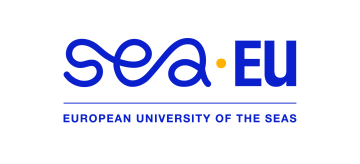ORCID ID: 0000-0001-6982-2246
Professor of Inorganic Chemistry since January 2012, and since October 2010 principal investigator of the Research Group of Solid Chemistry and Catalysis at the University of Cadiz. Author of more than 60 publications, 4 patents and more than one hundred contributions to both national and international conferences. He has made extended stays in different foreign universities (Lyon, Montpellier and Utrecht). He has participated in more than 20 research projects, having been responsible for three of them. It is worth mentioning his participation in two European projects, one of them coordinated by his research group and with the participation of 8 European laboratories plus the company Rhone-Poulenc. He has also been responsible for several applications in calls for infrastructures financed by UE funds.
Member of the Scientific Committees of the last three meetings of the Spanish Catalysis Society. He has participated in both academic (Vice-Dean of Academic Planning 2003-2007) and research management (Director General of Research at the UCA, 2007-2010). He has directed a total of 6 doctoral theses.
Regarding research topics, he has developed his entire research career in the field of Heterogeneous Catalysis and, in particular, in the study of materials based on oxides of lanthanide elements and supported metals with application in various types of processes related to energy production and environmental protection (three-way catalysts, wet oxidation of organic contaminants, dry reforming of methane, among others).
The "Solid Chemistry and Catalysis" group develops its scientific activity for more than thirty years having as main centre of interest the study of materials based on lanthanide oxides, including the preparation of these materials and the in-depth characterization of their chemical, textural and structural properties, as well as their application in heterogeneous catalysis.
Regarding the type of materials, pure oxides, CeMO2-x mixed oxides (M=Y, Zr, Tb, Pr), Metal systems (Rh, Pd, Pt, Ru, Ni, Co, Cu, Au)/Lanthanide oxide (CeO2, CeMO2-x) and more complex multi-component Metal/Lanthanide oxide/Support have been studied. They have been used both as powders or structured in the form of ceramic-based monoliths (ceramic or metallic).
With regard to the fields of application, in last years the group has focused on processes related to environmental protection, aimed fundamentally at the purification of contaminants, both in the gas and liquid phases, and the production of clean energy. Among the former, we would highlight the purification of exhaust gases emitted by vehicles (TWC-Three Way Catalysts), as well as the elimination of organic contaminants present in industrial wastewater by means of catalytic wet oxidation (CWAO-Catalytic Wet Air Oxidation). Regarding the processes related to energy production, efficient systems have been developed for the production of hydrogen (WGS-Water Gas Shift; PROX, Preferential Oxidation of CO in the presence of H2; CO Oxidation; APR, Aqueous Reforming of Methanol) or the valorisation of CO2 (DRM, Dry Reforming of CH4 with CO2).
CATALYSTS FOR THE PURIFICATION OF POLLUTING EMISSIONS INTO THE ATMOSPHERE AND LIQUID EFFLUENTS.
CATALYTIC PRODUCTION OF HYDROGEN FOR USE AS FUEL IN ENERGY GENERATORS WITH LOW ENVIRONMENTAL IMPACT ("FUEL CELLS").
PREPARATION, CHARACTERIZATION AND TESTING AS CATALYSTS AND SENSORS OF NEW CERIUM DIOXIDE BASED MATERIALS.
Design of efficient heterogeneous catalysts with low content of lanthanide and noble metals.
Catalytic processes for CO2 valorisation.
• Preparation of oxides and metal/oxides type catalysts by different techniques: conventional (co)precipitation, hydrothermal synthesis, microwave-assisted methods, deposition-precipitation, incipient wet impregnation, colloidal preparations, core-shell structures, structured systems in ceramic and metal monoliths made by 3-D printing.
• Chemical, textural and structural characterisation of materials using a wide variety of techniques such as: ICP, XRF, XRD, Volumetric adsorption of probe molecules (O2, H2, CO, N2, CO2, etc.), Programmed Thermal Reduction/Oxidation/Desorption, Thermogravimetric Analysis, FTIR, XPS and Raman Spectroscopies, Electronic Microscopy, etc.
• Evaluation of the catalytic behaviour of solids in different reactions in both gas and liquid phases (WGS, PROX, CO Oxidation, Methanization, Dry Reforming, Soot Combustion, DeNOx processes, etc.)
Sánchez, J.J., López-Haro, M., Hernández-Garrido, J.C., Blanco, G., Cauqui, M.A., Rodríguez-Izquierdo, J.M., Pérez-Omil, J.A., Calvino, J.J., Yeste, M.P.
Journal of Material Chemistry A (2019) Vol: Vol. 7, Issue 15. Pgs: 8993-9003
Gómez, Diana; Gatica, José Manuel; Hernández-Garrido, Juan Carlos; Cifredo, Gustavo Aurelio; Montes, Mario; Sanz, Oihane; Rebled, José Manuel; Vidal, Hilario.
Applied Catalysis B: Environmental Volume 144, January 2014, Pages 425-434
Lechkar, Ali; Barroso-Bogeat, Adrián; Blanco, Ginesa; Pintado, José María; Soussi el Begrani, Mohammed.
Fuel Volume 234, 15 December 2018, Pages 1401-1413
4. Surface characterization of two Ce0.62Zr0.38O2 mixed oxides with different reducibility
Yeste, María Pilar; Primus, Philipp Alexander; Alcantara, Rodrigo; Cauqui, Miguel Ángel, Calvino, José Juan; Pintado, José María; Blanco, Ginesa.
Applied Surface Science Volume 503, 15 February 2020, 144255
Delgado, Juan José; Chen, Xiaowei; Pérez-Omil, José Antonio; Rodríguez-Izquierdo, José María; Cauqui, Miguel Ángel.
Catalysis Today. Volume 180, Issue 1, 17 January 2012, Pages 25-33
